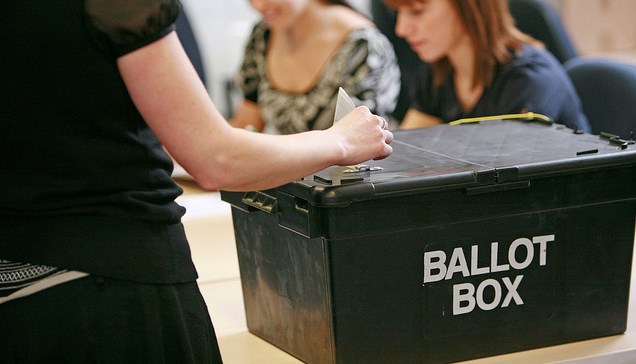
Don’t lose your voice - residents in Reading are urged to check their voter registration details from Reading Borough Council
- Residents are urged to make sure their electoral registration details are up to date.
- The easiest way to register is online
LOCAL RESIDENTS are being warned not to lose their voice on decisions that affect them by making sure their electoral registration details are up to date.
With Local Elections taking place in Reading in May 2022, this is an important opportunity for residents to make sure they can take part.
The annual canvass ensures that Reading Borough Council can keep the electoral register up to date, identifying any residents who are not registered to vote so that they can be encouraged to do so.
Christopher Brooks, Electoral Registration Officer at Reading Borough Council said:
“It’s important that residents look out for messages from Reading Borough Council, so we can make sure we have the right details on the electoral register for every address in Reading. We will send you a form for you to respond to. To make sure you are able to have your say at Local Elections taking place next year, simply follow the instructions sent to you.
“We are now moving onto the second stage of our Canvass. Some households will receive their first letter (known as ‘Canvass Communication B letter’) from the Council on or around 29th July 2021. This is only being sent to those households where we have not been able to match details with the Department of Work and Pensions. People must respond to this letter by 16th August 2021. The quickest and easiest way to reply is online by following the details given in the letter. If we do not receive a response then we are obliged to follow up with you and this will include a Door to Door Canvasser contacting you.”
“If you’re not currently registered, your name will not appear in the communication messages we send. If you want to register, the easiest way is online at www.gov.uk/register-to-vote, or we’ll send you information explaining how to do this in the post. You must still complete the Canvass Communication B letter that has been sent to your address.”
“As we carry out this important work to update the electoral register we continue to follow public health guidelines, including respecting social distancing.”
People who have moved recently are particularly encouraged to look out for the voter registration messages from Reading Borough Council and check the details. Research by the Electoral Commission, published in 2019, indicates that recent home movers are far less likely to be registered than those who have lived at the same address for a long time. Across Great Britain, 92% of people who have been at their property for more than sixteen years will be registered, compared to 36% of people who have lived at an address for less than one year.
Melanie Davidson, Head of Support and Improvement at the Electoral Commission, said:
“It’s really important that everyone who is entitled to vote is able to do so. Checking the messages that you will get from your local authority is the easiest way to see if you’re registered to vote. If you’re not, make sure you provide the necessary information to your local authority when it is needed and register to vote online at www.gov.uk/register-to-vote.”
Information on registering to vote is available on the Electoral Commission website.
Any residents who have any questions can contact their local registration team at Elections@reading.gov.uk or via Telephone on: 0118 937 3717.
Ends
Notes to editors
For more information contact the Electoral Commission press office on 020 7271 0704, out of office hours 07789 920 414 or press@electoralcommission.org.uk
Notes to editors
- Local Borough Elections are taking place in Reading in May 2022.
- The Representation of the People Act 1983 places a duty on Electoral Registration Officers to maintain the electoral register for their area and to conduct an annual canvass of all residential properties.
- The electoral register lists the names and addresses of everyone who is registered to vote. The register is used for electoral purposes, such as making sure only eligible people can vote. It is also used for other limited purposes specified in law, such as detecting crime (e.g. fraud), calling people for jury service or checking credit applications.
- The open register is an extract of the electoral register, but is not used for elections. It can be bought by any person, company or organisation. For example, it is used by businesses and charities to confirm name and address details. Your name and address will be included in the open register unless you ask for them to be removed. Removing your details from the open register does not affect your right to vote.
- To be eligible to register to vote a person must be:
- Aged 16 or over (a person may register to vote at 16, but may not vote until they are 18)
- A British or qualifying Commonwealth citizen who has leave to enter and remain in the UK or does not require such leave.
- A citizen of the Republic of Ireland or other European Union (EU) member state.
- British citizens, Irish citizens and qualifying citizens of Commonwealth countries (including Cyprus and Malta) can vote in local government elections, Mayor of London and London Assembly elections, and Police and Crime Commissioner elections. To date, the UK Government has not made changes to the eligibility of EU citizens, meaning at present they too can vote in these elections.
Full details of the Electoral Commission’s research on the electoral registers can be found on its website.
